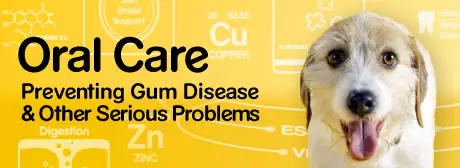As devoted pet owners, many of us dedicate ample time and resources to ensuring our dogs receive their vaccinations, regular veterinary check-ups, nutritious meals, and plenty of exercise. However, an alarming number of pet parents often neglect one of the most crucial aspects of overall health: dental care. In fact, studies reveal that nearly 80% of dogs over three years old show signs of periodontal disease, a statistic that ought to send shivers down the spine of any dog lover.
What truly amplifies the issue is the ripple effect periodontal disease can have on a dog’s overall well-being. This condition is not merely an oral nuisance; untreated periodontal disease can lead to severe health complications, including heart, lung, and kidney issues, as bacteria lurking in your dog’s mouth finds its way into the bloodstream. Thus, the importance of a systematic oral health regimen for our beloved companions cannot be overstated—good dental hygiene goes far beyond a bright smile.
The Pathway to Periodontal Disease: Understanding Teeth and Gum Issues
The genesis of dental issues in dogs revolves around the remnants of food. Every time your furry friend indulges in a meal, small food particles cling to their teeth, allowing bacteria to proliferate. If not diligently brushed away, these remnants coalesce with saliva to form plaque, which, within a matter of days, can harden into tartar. This hardened substance creates a breeding ground for further plaque accumulation, leading to gum irritation and, ultimately, gingivitis — the initial stage of periodontal disease.
Recognizing the early signs of gingivitis is vital. Pet owners should watch for indicators such as persistent bad breath, reddened gums, swelling where the gums meet the teeth, and even gingival bleeding. It’s crucial to acknowledge that gingivitis is a reversible condition with proper dental care. Yet, should it go untreated, it may progress to periodontitis, a stage that is incurable and can result in profound health issues, including tooth and bone loss. Establishing an oral care routine from the onset of your dog’s life is imperative in staving off these health complications.
The Power of Daily Dental Hygiene
The gold standard for maintaining your dog’s dental health lies in daily brushing. While it may sound daunting, regular brushing significantly reduces the buildup of plaque and tartar, ensuring your dog’s teeth remain clean and healthy. You can opt for specialized dog toothbrushes available at pet stores or even a soft-bristled human toothbrush. However, it’s imperative that you never use human toothpaste; it often contains fluoride and other detergents harmful to dogs if ingested.
In addition to brushing, routine dental examinations by your veterinarian play a crucial role in mitigating dental issues. These check-ups allow your vet to identify potential problems before they escalate into serious health concerns, assisting in proactive care that ensures your dog lives a longer, healthier life.
Food: The Unsung Hero of Oral Health
It’s important to recognize that your dog’s diet can profoundly influence the condition of their teeth and gums. Interestingly, various studies indicate that a diet primarily composed of dry food can assist in maintaining oral health by curbing plaque and tartar buildup. Certain brands, such as PEDIGREE®, have developed specifically shaped kibble that is designed to clean teeth as dogs chew, which demonstrates a proactive approach to dental health.
Moreover, incorporating oral health treats, such as PEDIGREE® DentaStix®, can play an instrumental role. These specially formulated snacks have been clinically proven to reduce tartar buildup by up to 80%. However, it’s essential to manage the treats wisely and avoid the temptation to feed your dog table scraps, which can lead to weight gain and further dental complications.
Maintaining a balanced diet, combined with daily oral care, provides a one-two punch against dental disease, positively impacting your pup’s oral health and overall vitality. And regular vet appointments will help ensure that any problems are caught early, giving your dog the best chance for a happy, healthy life.
Time for a Change: Prioritizing Your Dog’s Oral Health
The time has come for pet owners to shift perspectives and place oral health on the same pedestal as vaccinations and nutritious food. This pivotal change in approach can potentially prevent the onset of periodontal disease and countless other health complications that could jeopardize the quality of life for our beloved dogs.
Now is the moment to actively incorporate routines and diet adjustments that favor our dog’s dental wellness. Commit to brushing their teeth, scheduling regular vet check-ups, and selecting dentist-approved dog treats. Your canine companion deserves a future filled with vibrant health—starting with a well-maintained smile.

